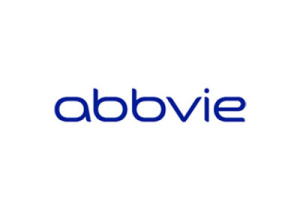Seppo Kurkinen
Mr Seppo Kurkinen is currently working as a counselor in the Public Management Department of the Ministry of Finance, Finland. He has previously been working in two other ministries in Finland, in the Ministry of Labor and the Ministry of Transport and communications. He has worked in the private sector as well. He has also managed some international projects of the European Union. He has attained degree of Master of Social Sciences from the Helsinki University.
Previously he has been responsible for the development and implementation of very big information systems in the state administration in Finland. He is in his present position involved in the development and coordination of electronic services in the state administration. In that area he is also coordinating the development of one stop shop for companies reporting to authorities.
Previously he has been responsible for the development and implementation of very big information systems in the state administration in Finland. He is in his present position involved in the development and coordination of electronic services in the state administration. In that area he is also coordinating the development of one stop shop for companies reporting to authorities.
Sign in to Autumn ITAPA 2024
-
eGovernment Services in Finland | Kongres ITAPA 2006
For a long time, Finnish State governance has been developing information exchange among authorities and reforming processes. A comprehensive system of basic registers and identifiers, such as the personal identity number and the business identity code of undertakings, have made integrated data collection and the joint use of data possible. As a result, administration has been able significantly to reduce traditional communications events with citizens. A good example is the taxation proposal procedure, where the tax payer, instead of reporting information, only checks that the authority has the correct information. The basic guidelines for the development of electronic governance will be the same also in the future.
Finland was the first country in the world to introduce an electronic national identity card. It has been possible for the citizens to obtain electronic identity cards since December 1999. The modest interest in the electronic identity card has, to some extent, slowed down the development of communications services requiring strong authentication of the citizens. In order for the identification of citizens not to slow down the development of citizen services, the Ministry of Finance, in autumn 2002, recommended the use of the identification services of the banks (TUPAS) in services requiring reliable identification. Already more than two million citizens have online identifiers of the banks.
So far, Finland has done well in international comparisons relating to the provision and the state of the development of electronic communications services in the public governance of various countries. Finland has always been one of the six best countries in the world. We can say that this is due to decentralised development, where State agencies and municipalities have fairly independently and alone been developing their own electronic services.
Both bigger State institutions and bigger municipalities have, to a commendable degree, opened their most common services for self-service use. Both in the State and the municipal sector, there are certain electronic communications services undeniably favoured by the clientele. The identification of the citizens is no longer such a bottleneck as before after bank identification became accepted in public services. Some of the forms and applications provided by the authorities can already be filled in and returned as part of electronic self-service.
Also customers have found the communications services. For example, the national electronic application for study places in universities already comprises all the students. In addition, the Social Insurance Institution, KELA, has been introducing electronic communications services with quite a high utility rate. What is typical of the most successful services is the integration of the service in the service process. -
Discussions | Kongres ITAPA 2006




















